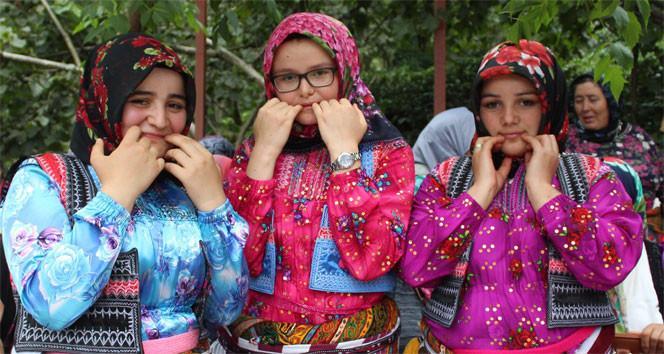Over 100 students learned Turkey’s UN-protected whistled ‘bird language’
GİRESUN

The endangered whistled language spoken in Turkey’s Black Sea region has been taught to over 100 students, according to an official.
“We have taught this language with the help of our adepts to over 100 students. Of course, learning this necessitates a certain amount of mastery. One does not speak this at home, practical experience in the nature is crucial,” Yılmaz Genç, the Çanakçı district education director in the Black Sea province of Giresun, told state-run Anadolu Agency on March 9.
In a bid to pass the whistled language down to the next generations, the public education center in Çanakçı has been running courses since 2014.
“Starting a course requires a certain level of demand. Since most adults know this language, there is no demand at the moment [from the adults],” Genç said.
The courses are offered in a “fun way” so that they arouse children’s interest in this language, Genç said, adding that the teachers also teach the region’s culture during the courses.
In the first semester of the 2018-2019 education year, some 13 students learned the whistled language, Genç said, adding that they are currently receiving applications for the second semester.
“Our aim is to teach this language to the future generations in a more efficient way. We are showing how to pronounce some special letters in Turkish language by whistling. We are teaching them this language just like reading and writing,” said Cüneyt Köse, a qualified instructor of the whistled language.
Students learn 70 percent of this language thanks to the courses, said Köse, adding that the rest is learned through practice with the elderly who have been speaking the language for many years now.
UNESCO inscribed the whistled language in 2017 to the list of Intangible Cultural Heritage, stressing that the language is in urgent need of safeguarding.
Over 10,000 people in Turkey’s Black Sea region, mostly in Çanakçı, use this language effectively.
The language, Kuşdili (bird language), was developed to allow people to communicate across steep mountain valleys, but has been dying out, as mobile phones reduce the need for new generations to learn the language.
The language is commonly used in the village of Kuşköy in Çanakçı, which translates as “bird village,” but 50 years ago it was widespread across the Black Sea regions of Trabzon, Rize, Ordu, Artvin and Bayburt.
Since 1997, the Bird Language Festival has been held in Kuşköy to promote its use. However, despite these efforts, UNESCO found that “the whistled language may soon totally disappear unless essential safeguarding measures are undertaken using an integrated approach.”
















